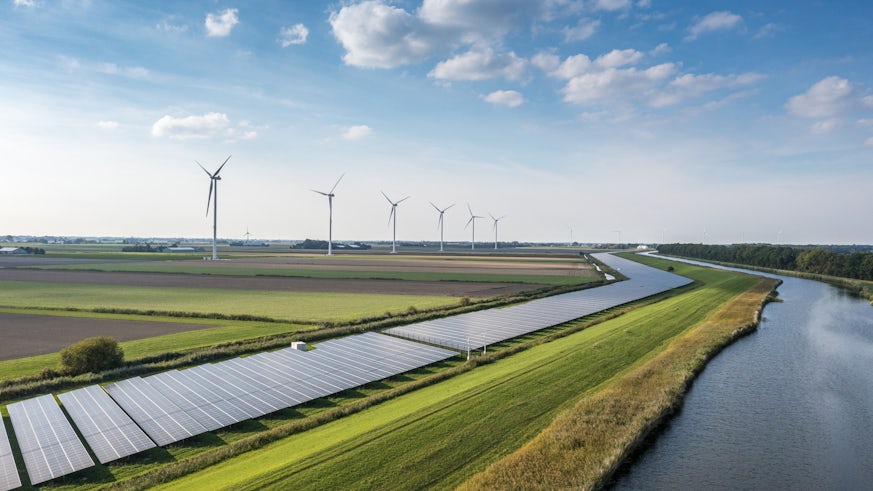Working towards a fully sustainable energy sector
18 July 2023

Academics from Cardiff University will lend their expertise to three new research initiatives to drive forward change in the energy system and help the UK meet its net zero target.
The Energy Demand Research Centre (EDRC), the Hydrogen Integration for Accelerated Energy Transitions Hub (HI-ACT) and the Supergen Energy Networks Impact Hub are part of a £53 million UK Research and Innovation (UKRI) investment in six new research centres and hubs set to lead the UK to a fully sustainable energy sector.
The centres will boost knowledge, create innovative green technologies and reduce demand for energy to achieve greener, cleaner domestic, industrial and transport energy systems.
Professor Meysam Qadrdan from Cardiff University’s School of Engineering will support the EDRC build an evidence base for understanding consumer behaviour, assessing the impact of socio-technical energy demand reduction measures, and research mechanisms to improve energy efficiency.
With funding of £15 million awarded by the Engineering and Physical Sciences Research Council (EPSRC) and Economic and Social Research Council (ESRC), the centre will investigate how domestic, industrial and transport energy demand reduction can be delivered on a local and national level across the UK.
Professor Qadrdan said: "Decarbonising the demand sectors and reducing the energy consumption are ‘no regret’ strategies to tackle climate change and improve energy security.
"The EDRC presents a distinct opportunity for interdisciplinary research into energy demand, yielding actionable outcomes and tangible impacts. Our team at the Centre for Integrated Renewable Energy Generation and Supply will primarily contribute to the EDRC offering expertise in demand-side flexibility and whole-system analysis.
"We’re looking forward to getting started!"
Also supported by Cardiff University expertise, HI-ACT will provide a focus for the UK research community, working in close partnership with businesses, governments, and administrations to tackle research challenges that underpin the hydrogen production, storage and distribution parts of the hydrogen value chain.
Within the HI-ACT consortium, Professor Karen Henwood of Cardiff University’s School of Social Sciences has responsibility for generating knowledge of expert visions and public responses for place-based solutions design of changing socio-technical systems.
This social sciences contribution will be essential in addressing a diversity of social and economic challenges posed by net zero systemic change.
With funding of £10 million from the EPSRC, the hub will ensure hydrogen is appropriately integrated in a future equitable energy system, through holistic multi-disciplinary research which address integration challenges.
Professor Jianzhong Wu, Head of Cardiff University’s School of Engineering and Cardiff’s principal investigator on the HI-ACT initiative, said: "We are proud to contribute to the HI-ACT Hub, leveraging our expertise in multi-vector energy systems and our strong regional connections here in Wales.
"Together, we will drive the integration of hydrogen and alternative liquid fuels, playing a vital role in the UK's net zero transition and shaping a sustainable and equitable energy future."
Professor Wu will also collaborate with Dr Muditha Abeysekera of Cardiff University’s School of Engineering on the Supergen Energy Networks Impact Hub based at the University of Bristol.
With £5 million funding from the EPSRC, the hub will investigate modernisation of energy distribution systems between suppliers and users to become a driving force towards a rapid, safe and just transition to net zero.
Professor Dame Ottoline Leyser, Chief Executive of UKRI, said: "The government has set a target of reaching net zero emissions by 2050, requiring rapid decarbonisation of our energy systems. UKRI is leveraging its ability to work across disciplines to support this ambition through a major portfolio of investments that will catalyse innovation and new green energy systems.
"The funding announced today will support researchers and innovators to develop game changing ideas to improve domestic, industrial and transport energy systems."






